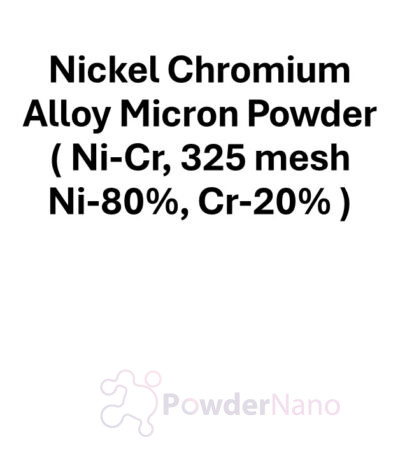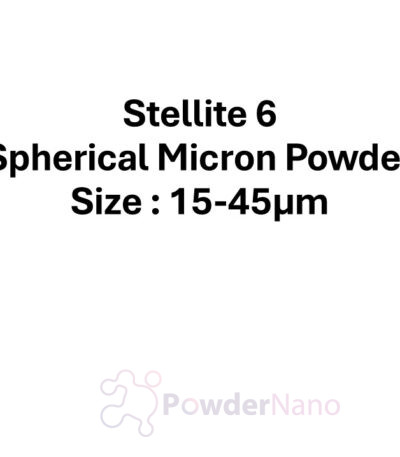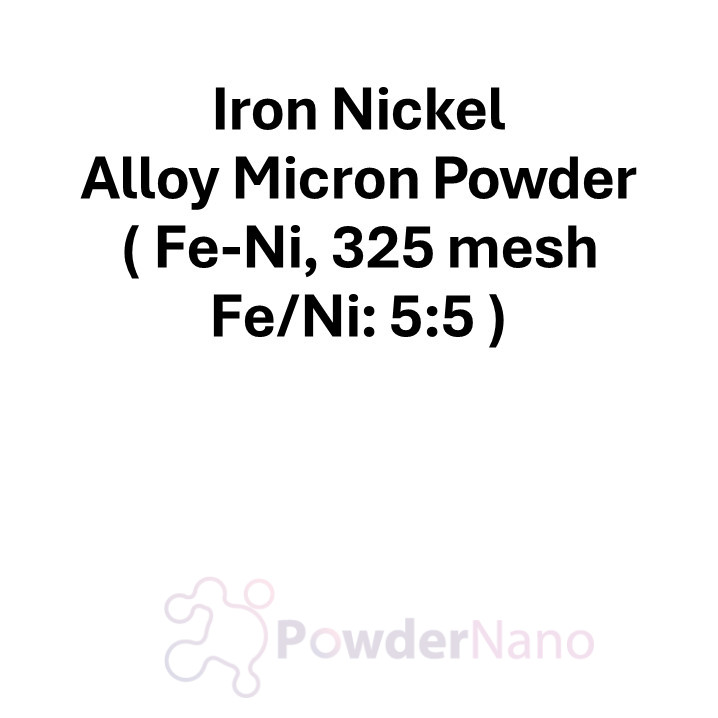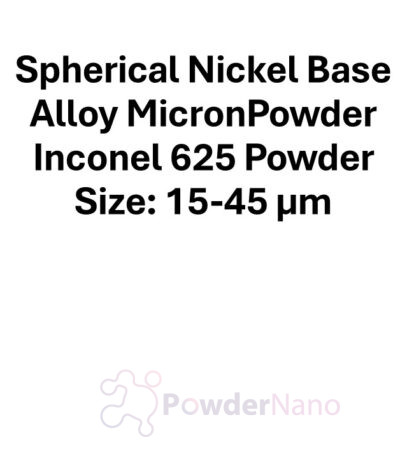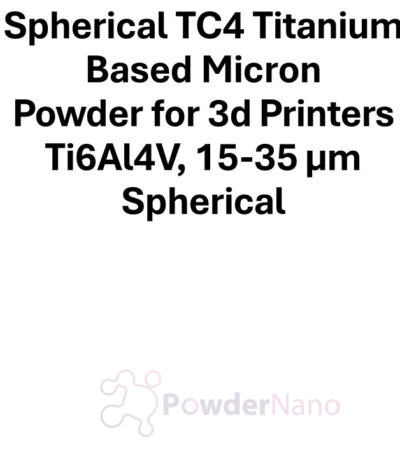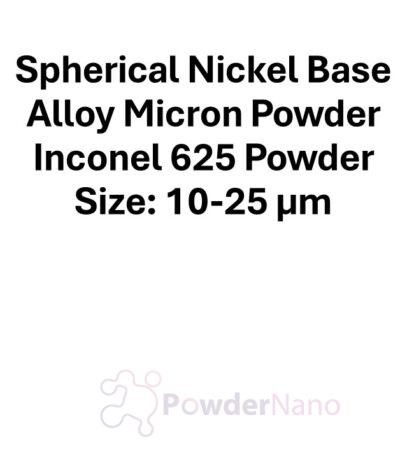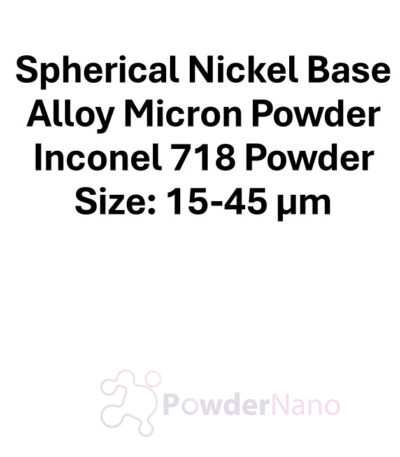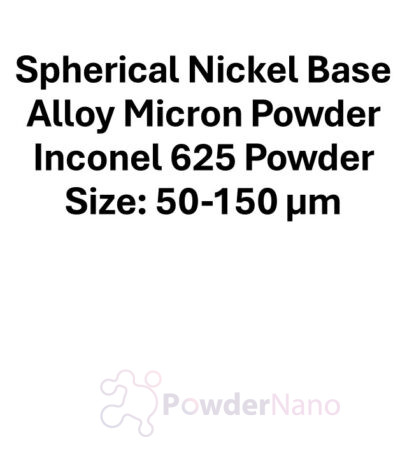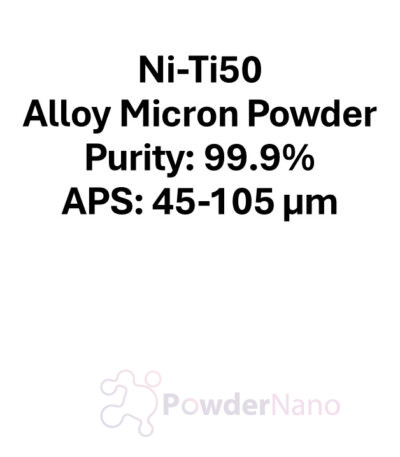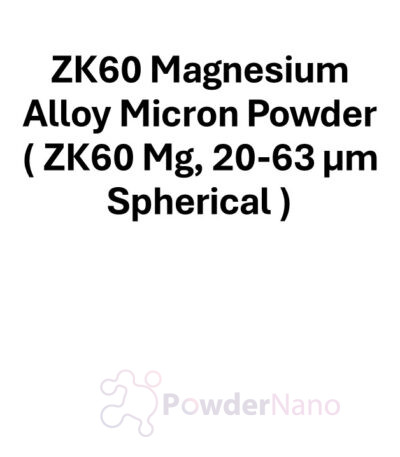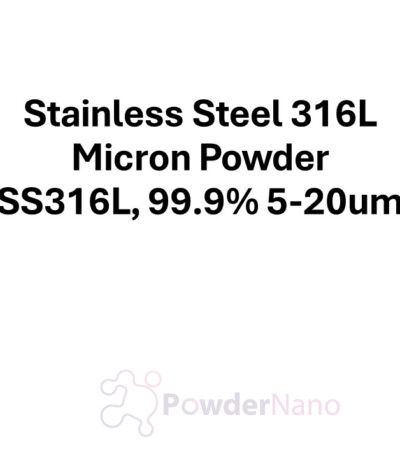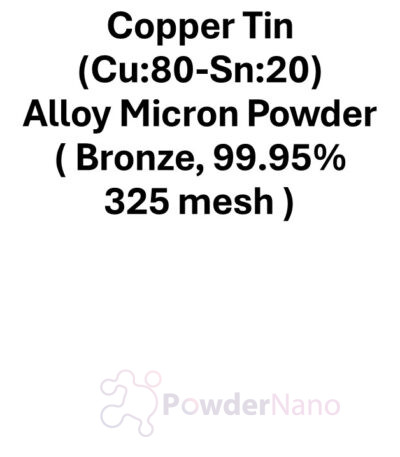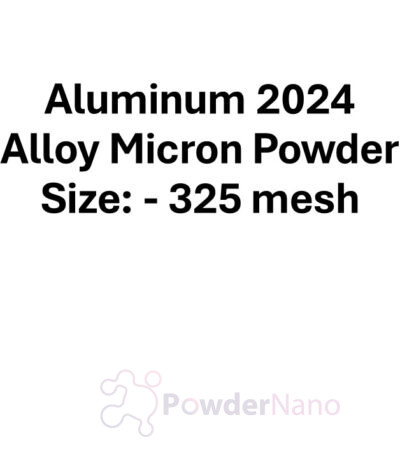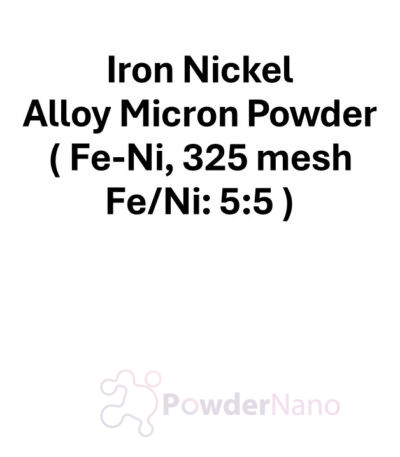Iron Nickel Alloy Micron Powder (Fe-Ni, 325 Mesh, Fe/Ni: 5:5)
Technical Specifications:
- Material: Iron Nickel Alloy (Fe-Ni, 5:5)
- Purity: Typically 99.9% (high purity)
- Particle Size: 325 Mesh (approximately <45 µm)
- Shape: Typically spherical or irregular (depending on the manufacturing process)
- Density: Approximately 8.3 g/cm³ (for iron-nickel alloys)
- Melting Point: Approximately 1,400°C (2,552°F) depending on the exact composition
- Boiling Point: Iron and nickel do not have a specific boiling point but tend to sublime at extremely high temperatures (above 2,500°C).
- Chemical Composition (Fe/Ni: 5:5):
- Iron (Fe): 50%
- Nickel (Ni): 50%
Applications:
- Powder Metallurgy:
- Iron Nickel (Fe-Ni, 5:5) alloy powder is commonly used in powder metallurgy for manufacturing high-performance, durable components. The powder is compacted and sintered to create complex-shaped, high-strength parts like gears, bearings, pumps, and electrical connectors.
- This alloy provides good tensile strength, hardness, and resistance to wear, making it ideal for industrial applications requiring precision and reliability.
- Additive Manufacturing (3D Printing):
- Fe-Ni alloy powder is widely used in metal 3D printing techniques like Selective Laser Melting (SLM) and Laser Powder Bed Fusion (LPBF). The 325 mesh powder is suitable for producing complex parts with high mechanical properties, such as functional prototypes and production-grade components for industries like aerospace, automotive, and electronics.
- The powder’s tensile strength, ductility, and uniformity make it ideal for creating high-performance parts that require precise geometries.
- Automotive Components:
- Fe-Ni alloys are used in automotive applications due to their strength, fatigue resistance, and thermal properties. Parts such as engine components, transmission parts, brake systems, and fuel system components benefit from the alloy’s ability to withstand high temperatures, corrosion, and mechanical stress.
- The powder is used in additive manufacturing to produce customized automotive components, including engine brackets, turbocharger components, and high-performance fasteners.
- Electrical Components:
- Iron Nickel alloys are commonly used in electrical applications such as transformers, inductors, magnetic cores, and electromagnetic shielding. The Fe-Ni alloy offers good magnetic properties and high electrical conductivity, making it ideal for magnetic applications.
- The micron powder is employed to create magnetic materials that perform efficiently in transformers and electrical systems where magnetic properties are essential.
- Magnetic Materials:
- Iron Nickel alloy (Fe/Ni 5:5) is used to create high-permeability magnetic materials for applications such as motors, generators, inductors, and transformers. The Fe-Ni alloy provides high magnetic saturation and low coercivity, making it ideal for use in electromagnetic components.
- The powder is particularly useful for precision components in sensor technologies and magnetic shielding.
- Industrial Equipment and Machinery:
- Fe-Ni alloy is used in the production of wear-resistant components for industrial machinery, including pumps, valves, gears, and shafts. Its resilience to corrosion and high-temperature performance makes it an ideal material for heavy-duty equipment and machine tools that need to perform in challenging environments.
- The powder form allows the production of precise, durable parts that meet the mechanical and thermal requirements of high-performance machinery.
- Aerospace and Aviation:
- Iron Nickel alloys are used in aerospace applications for components that require high strength, lightweight design, and resistance to heat and oxidation. Common applications include engine parts, landing gear, fasteners, and airframe components.
- The micron powder is used in 3D printing of custom aerospace parts, providing a means to create complex, lightweight structures that are critical in aircraft design.
- Medical Devices:
- Iron Nickel alloys are used in medical devices where high strength and resistance to corrosion are essential. These alloys are commonly used in the production of implants, prosthetics, and surgical tools.
- Fe-Ni micron powder is used in customized implants that require precision, biocompatibility, and mechanical integrity, particularly in hip replacements, spinal implants, and dental devices.
- Marine Applications:
- Fe-Ni alloys are highly resistant to corrosion, particularly in marine environments, making them ideal for use in marine hardware, propellers, seawater pumps, and underwater sensors. The micron powder is used to produce corrosion-resistant components for use in harsh, saltwater environments, ensuring longevity and reliability in offshore operations.
- Thermal Management:
- Iron Nickel alloys are used in thermal management components such as heat exchangers and radiators in both industrial and electronics applications. The alloy’s thermal conductivity and resistance to high temperatures make it ideal for heat dissipation in power electronics and energy generation systems.
- Research and Development:
- Fe-Ni alloy powder is used in R&D environments to explore new material properties and applications in advanced manufacturing techniques like powder metallurgy and additive manufacturing. Researchers utilize the powder to test its behavior in high-performance applications and to optimize material properties for new technologies.
Iron Nickel Alloy Micron Powder (Fe-Ni, 325 Mesh, Fe/Ni: 5:5, 99.9%) is a versatile, high-performance material used across multiple industries where strength, thermal resistance, magnetic properties, and corrosion resistance are critical. The fine particle size is particularly beneficial for additive manufacturing, powder metallurgy, and the production of precision components in automotive, aerospace, electrical, medical, and industrial machinery. Its use in high-performance applications ensures it meets the mechanical and thermal demands of industries requiring durable and reliable components.
